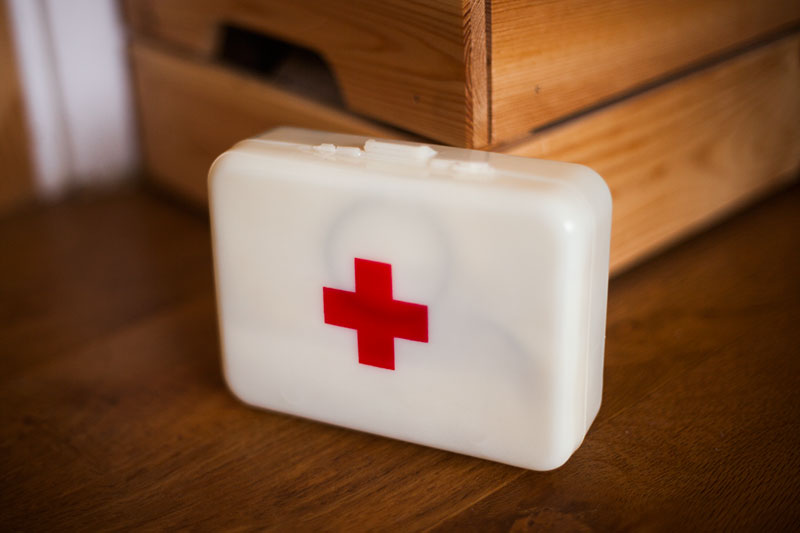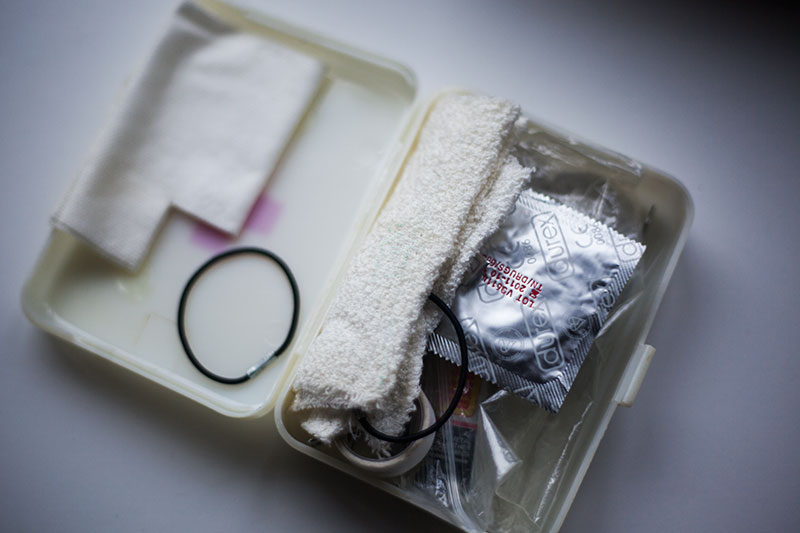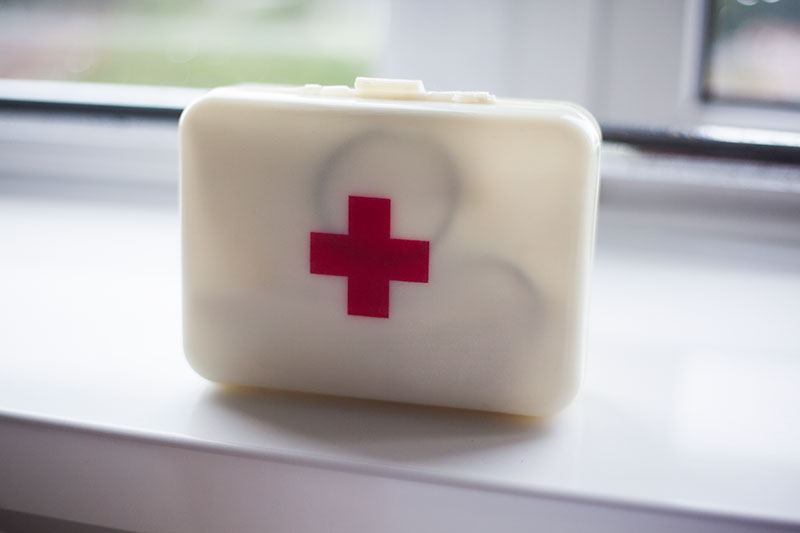So we’ve been a little MIA recently on this blog. You may or may not have been able to tell, but from this end of things, it’s felt like we’ve been half in half out for weeks.
See, a relative of ours was diagnosed with cancer. Don’t worry – 1) It’s been long enough for us to have learned that the cancer hasn’t spread and, 2) The individual has already had surgery and it appears as though it’s fully gone (still waiting for confirmation). So yes, everything is okay, but that’s not what this article was intended to be about anyhow.
What this article is about: how Thomas and my ideas about how to prep for situations like this in our own lives have bounced from here and there and everywhere to a point where we’re now really happy about our decisions. This article is about how we’ve decided to prepare for situations like this in our own future.
Okay so let’s get into it.

You Have Public Healthcare: Why Go Private At All?
Thomas and I currently live in the United Kingdom. I lived in Canada all my life up until this point and he lived the majority of his in the UK, so in terms of public health care – it’s always been an option.
That has never meant either of us has ignored the value of private healthcare. We always have seen its value, both of us, and luckily it’s something we’ve always been on the same page about.
Reasons why we’re interested in private health care, even though we have public health care (what we consider a “back up” and non-preferred option):
- With private healthcare, you get to choose your doctors and/or surgeons. This can be of utmost importance since you can choose the doctor/surgeon who’s most specialized in what you have, who only does the specific procedure you need done, or whatever other kind of qualification you want, which I deem incredibly important.
- You get a say in which medications they prescribe you (if there are many different brands on the market, usually public health care will default to their standard and that’s just what you get).
- You get faster service if you go private. This may be a useless perk if what you have is not life threatening, but in case it is, speed of service could be a life-saving advantage.
- You 100% get treated differently, much better, with private – but I don’t care about bedside manner and care only about effectiveness, so this doesn’t really matter much to me.
When our family member first noticed her symptoms and went in to a private hospital to get things checked out (this was pre-diagnosis, she was scheduled for exploratory surgery), we jumped to the conclusion that we should check out our options when it came to health insurance. So we did, and were essentially about to hit the pay button. That is until we realized – the surgeries in this country cost far less to save up for than life than health insurance would be worth. The math didn’t add up. We should simply be putting that money aside for health insurance into a bank account and paying for procedures ourselves.
The cost of healthcare insurance: roughly £2000 a year for both Thomas and I. The cost of a major surgery + time spent in hospital at a very reputable hospital with a hyper-specialized surgeon = approximately £8000. Even if one of us needed major surgery every 5-6 years, we’d still essentially be saving money by going private, but self-funding, rather than going private and paying with insurance.
Advantages of Self-Funding Private Health Care
There are of course other benefits to self-funding private healthcare:
- I could preemptively get surgery where I feel I might have issues in the future. This is very important to me but I’ll discuss more on why later.
- I don’t need to deal with the fine print and worry about whether “my insurance” covers what I want.
- I don’t need to deal with asking for money from insurance companies to begin with, which can be a difficult and tedious process from what I understand.
- All in all, basically I have more control if I pay with my dollar instead of an insurance company’s dollar, which I dramatically prefer.
With regards to the first point, here is my reasoning.
Breast cancer runs in my family – but not strongly enough for me to be able to get a test from the NHS to see if I carry the most popular gene, and certainly not strongly enough to ask for a preemptive mastectomy, public-healthcare funded, to prevent the possibility of my getting it.

Yet having a preemptive mastectomy is certainly something I’ve always felt strongly I should do. It’s unlikely I will get this kind of cancer at my age, but as I get older, my risk increases, and once I feel the risk has become high enough, I would love to preemptively have surgery so I don’t have to deal with potentially getting breast cancer later.
Is this line of thinking common? No, and I’m sure some reading this will think I’m crazy for it. Personally, I don’t care how popular the idea is, however. To me, nothing is more valuable than life, and it makes absolutely no sense to wait for cancer to show up when I can prevent it from showing up later today. Preventive surgery is an option I will happily take, as imagining breast cancer cropping up when I am an elderly woman and no longer able to easily survive surgery when I could have opted for the same procedure when I was younger is my idea of a nightmare. My great grandmother lived to be 95. What took her out: breast cancer. She developed an infection after having surgery to remove it. If I get breast cancer when I’m 75 or 85 and that’s what steals a decade or two from me – all because I wasn’t smart enough to get a surgery that would have been easy for me to handle when I was younger – well I’ll be damned – that’s just not the way I want to go.
Are there many types of cancer you can prevent this way (by preemptively getting surgery)? Not really, but in my case, the vast majority of genetic medical issues I could have would become complete non-issues if I opted in to a preemptive mastectomy and a preemptive hysterectomy. Amazing peace of mind for surgeries I likely couldn’t have gotten insurance or a public health care system to pay for. And yes, it will mean I’m much less likely to have medical bills to pay later, as paying for surgery + chemo treatments after you have cancer is of course a lot more expensive than paying for the surgery that will prevent cancer.
When is Self-Funding Private Healthcare a Good Idea?
When is going this self-funded private healthcare route a stupid idea? In my case, it’s where I’m terrible enough with my finances to believe it’s better to save up money to self-fund my healthcare, and then I don’t save money to self-fund healthcare. In that case, there’s hands down no way this is an intelligent idea.
But if I do things properly – save up the money that otherwise would have gone to insurance in a bank account, not touch it, and keep it easily accessible in case Thomas or I ever need it; if we use that money only for healthcare emergencies or for preventative surgeries that will keep us from becoming sick down the line – this plan should work out to our financial benefit and will be better for our overall health as well. Win, win. And no frustration over refunds from insurance needed.
I’d like to note that this system only works for Thomas and I because of the price tags attached to insurance & the relatively low cost of healthcare in this country. In Canada, we’d have to evaluate things differently, because I’m pretty sure the price tag associated with private health care, whether it’s procedures or medication, is much higher, while insurance is roughly the same. It might have been worth it to go the insurance route there.
Same “we’d need to re-evaluate” principle goes for if we lived in the States, where I’m not at all sure about how expensive procedures and medication are, and to my understanding, it’s different based on a lot of factors, like which city you live in and which hospitals around you are good for what. It seems to me that prices for procedures and healthcare in general are extremely varied from one country to the next, and no matter what, the math would have to be done on a per-person/per-family basis.
There is of course also the fact that both here in the UK and in Canada, public health care is essentially an enormous back up option that in the States does not exist. If we self-fund our healthcare and run out of money here, it’s nowhere near as troubling as if we tried to do the same in the States. This is obviously a huge consideration, so chances are very high that if Thomas and I lived in the States, we’d decide it was better to have health insurance, though considering how many options there are with types of healthcare insurance, I’m not sure which tier we’d go with and whether we’d do a self-funded/insurance hybrid or go fully in on insurance.

Your Opinion: Insurance VS Self-Funding – Private Healthcare on Top of Public Healthcare?
Would love to hear your thoughts and what you think about insurance versus self-funding health care, and if you’d buy insurance, how much coverage you would get and if you would ever do a hybrid between self-funding and insurance. Would you ever opt in to preventative surgeries early on if there was a genetic likelihood of something happening to you down the line? I know many of you live in the States (not all, though, we’ve got a number of fellow Canuks & Limeys here reading I know!), but if you did have a public healthcare option, would you want to go private sometimes or do you think you’d just stick to the public healthcare route?
I know I’ve asked a lot of questions here, but I’m sure this will make for some interesting conversation, and it’ll be nice to see how where you live influences what ends up being the best decision.
Looking forward to reading your comments!

![Rural vs Urban Prepping [PODCAST]](https://survivalcove.com/wp-content/themes/mts_sociallyviral/images/nothumb-sociallyviral-featured.png)
























